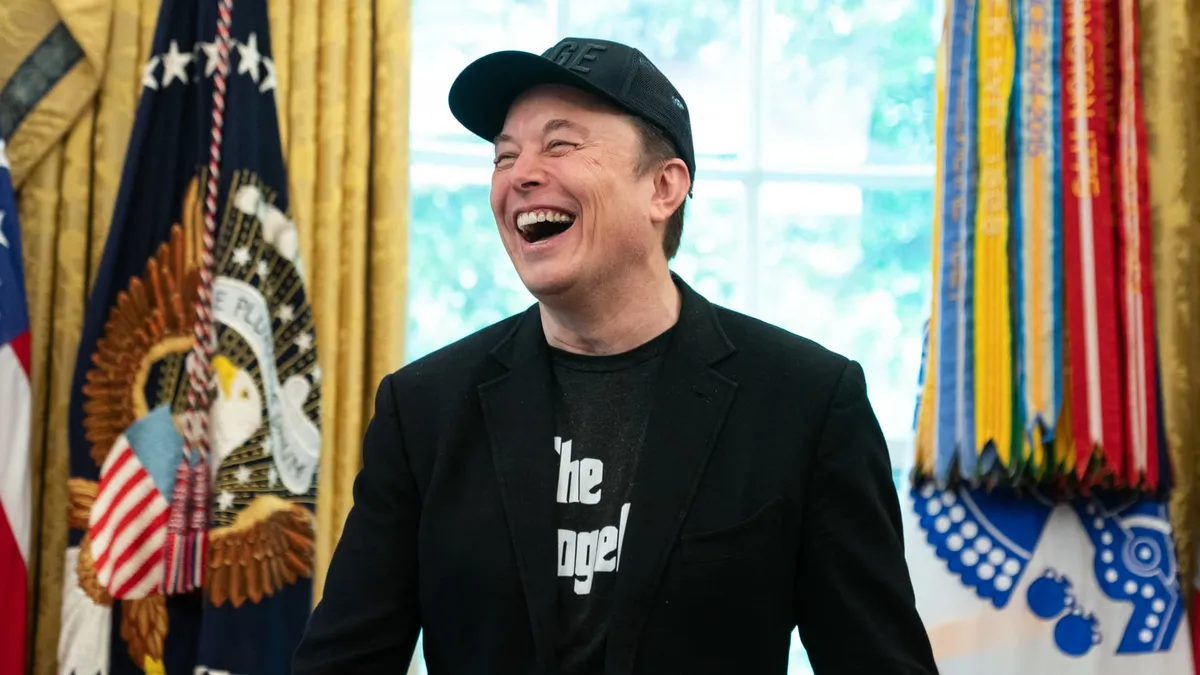
In his first week away from the U.S. government's Department of Government Efficiency, Elon Musk is witnessing promising developments in his companies. His brain technology startup, Neuralink, has successfully announced a substantial funding round of $650 million. Meanwhile, his electric vehicle manufacturer, Tesla, reported an impressive 213% year-on-year increase in sales in Norway for the month of May. While the connection between Musk's departure from DOGE and these outcomes may be considered tenuous, the results highlight the underlying success of his ventures.
It is important to note that the funding and sales growth occurred while Musk remained engaged with the White House, suggesting that these advancements could have transpired independent of his direct involvement. Nevertheless, they underscore why many continue to support Musk: his companies consistently demonstrate their viability and success. However, much like Tesla's ambitious full self-driving feature, Musk's enterprises require dedicated leadership to navigate the complexities of their respective industries.
The financial markets experienced a muted start to June, with U.S. stocks posting modest gains on the first trading day of the month. The S&P 500 advanced by 0.41%, the Dow Jones Industrial Average edged up 0.08%, and the Nasdaq Composite rose by 0.67%. Conversely, the pan-European Stoxx 600 index saw a slight decline of 0.14%. Notably, shares of Wegovy maker Novo Nordisk climbed by 1.9% amid a recent U.S. ban on copycat weight loss drugs.
The recent announcement of a 50% tariff on steel imports by U.S. President Donald Trump is expected to lead to higher prices for steel in America. Analysts have indicated that steel prices in the U.S. are already higher than in other countries, and as a net importer, the U.S. requires consistent steel volumes. According to Josh Spoores, head of steel Americas analysis at CRU, this tariff will only serve to inflate prices further, stating, "All this does is raise prices there."
Elon Musk's Neuralink has successfully closed a funding round amounting to $650 million, as announced on Monday. Notable investors in this round include ARK Invest, Founders Fund, Sequoia Capital, Thrive Capital, Lightspeed Venture Partners, among others. Neuralink is at the forefront of developing a brain-computer interface, a pioneering system designed to translate brain signals into commands for external technologies, showcasing Musk's commitment to advancing neurotechnology.
Tesla's sales of new cars in Norway experienced a remarkable surge, skyrocketing by 213% to 2,600 vehicles sold in May compared to the same month last year. This impressive increase was primarily driven by the sales of Tesla's revamped Model Y compact sport utility vehicle. However, it is essential to acknowledge that this surge contrasts with a downward trend in Tesla sales across other European countries, including Spain, Portugal, Denmark, and Sweden, where industry reports indicated significantly lower sales figures for May.
The fluctuating trade policies, proposed foreign capital taxes, and concerns regarding U.S. fiscal spending have led to the emergence of a new investment trend dubbed 'Anywhere But The USA'. According to Alan Siow, an investment manager at Ninety One, this trend represents a recalibration towards global balance, cyclical recovery, and multi-polar growth. Investors and portfolio managers are actively exploring opportunities beyond U.S. borders.
In a significant shift, American agricultural products have been disappearing from Chinese stores and restaurants, making way for imports from other countries. At his restaurant in Beijing, owner Geng Xiaoyun previously featured a special dish of salt-baked chicken feet, known as phoenix talons in China, sourced from the U.S. However, due to tariffs, prices have surged by 30% since March, forcing Xiaoyun to remove American chicken feet from his menu. Despite his fondness for their quality, he lamented, "Chinese chicken feet just aren't as good."